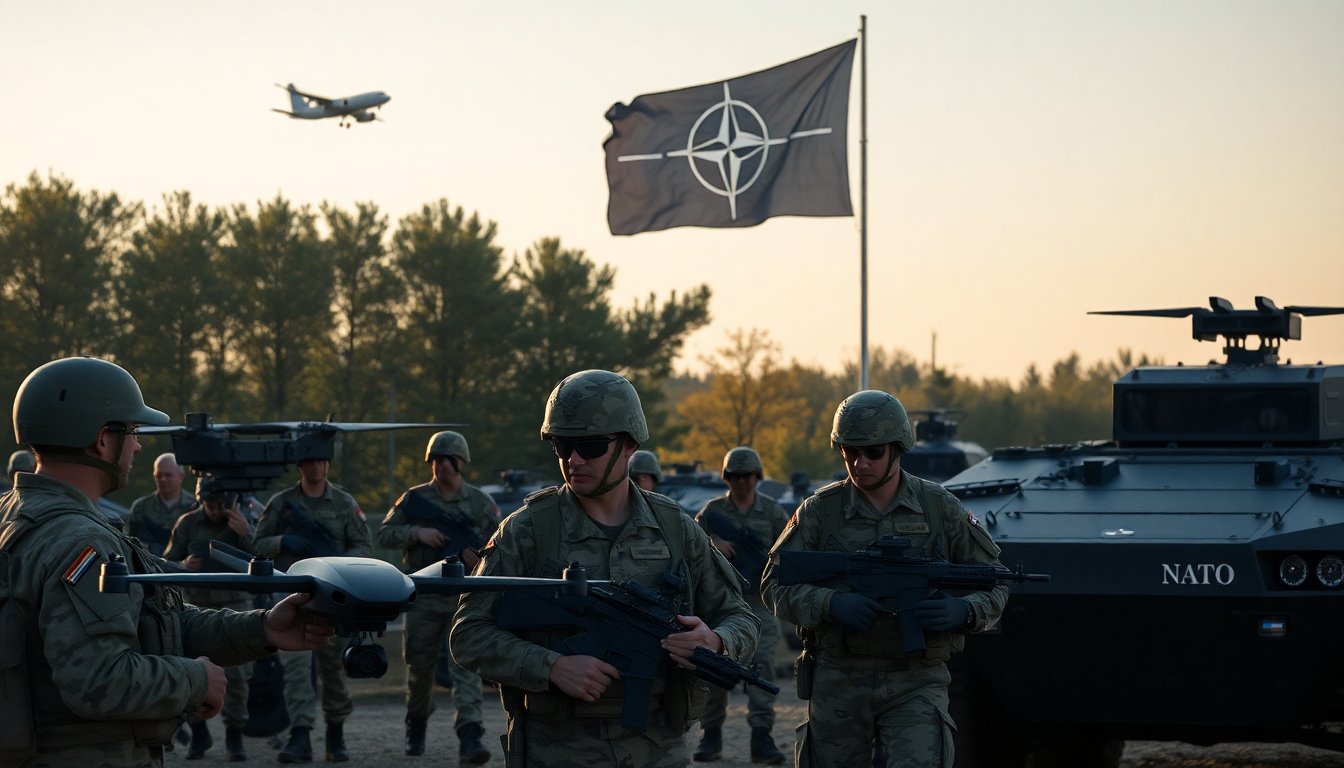Table of Contents
In response to escalating tensions between NATO and Russia, the alliance has unveiled a new military initiative called Eastern Sentry. This strategic decision follows a significant incident in which Russian drones allegedly violated Polish airspace, raising concerns about regional security and the ongoing conflict in Ukraine. During a joint press conference in Brussels, NATO Secretary General Mark Rutte emphasized the importance of this initiative in bolstering the alliance’s eastern flank, reaffirming a collective commitment to protecting member nations.
NATO’s Response to Airspace Violations
The situation intensified on a Wednesday when several Russian drones entered Polish airspace, prompting NATO to take swift action. Fighter jets were deployed to intercept the drones, underscoring the seriousness of the incursion and the risk of further escalation in the region. Secretary General Rutte stated that while NATO is still determining whether this violation was intentional, the reckless nature of such actions is clearly unacceptable. He reiterated that in NATO’s collaborative framework, a threat to one member signifies a threat to all, a sentiment echoed by U.S. General Alexus Grynkewich during the conference.
The Eastern Sentry initiative aims to be a flexible and responsive military operation, utilizing resources from allied nations including Denmark, France, the United Kingdom, and Germany. The initiative is designed to deliver focused deterrence and defense precisely when and where it is needed, reinforcing NATO’s commitment to collective security.
International Reactions and Military Commitments
The announcement of Eastern Sentry has elicited a prompt response from NATO allies. French President Emmanuel Macron announced his intention to deploy three Rafale fighter jets to Poland, emphasizing that the security of Europe remains a paramount concern amid Russian aggression. This military collaboration illustrates NATO’s unified stance against external threats and highlights its readiness to defend member states.
Additionally, the United Nations Security Council convened at Poland’s request to discuss the airspace violations, reflecting global concern regarding the ongoing tensions with Russia. Poland’s Defense Minister, Wladyslaw Kosiniak-Kamysz, expressed appreciation for NATO’s decisive actions, framing the initiative as both a strategic necessity and a responsibility towards the collective security of the alliance’s eastern flank.
Future Implications for Eastern Europe
As NATO rolls out the Eastern Sentry initiative, the broader implications for Eastern Europe and its security landscape will gradually become evident. The initiative serves as a deterrent against potential aggression and reinforces NATO’s commitment to its members. The operation’s inherent flexibility allows it to adapt to evolving threats, ensuring that NATO remains a formidable force in defense of its allies.
Looking ahead, it will be essential for NATO to maintain open lines of communication with Russia to de-escalate tensions while simultaneously ensuring the security of member states. The Eastern Sentry mission represents a significant step in reaffirming NATO’s principles of collective defense and its readiness to respond to any threats that may arise in the region.


